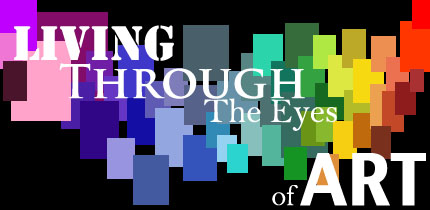How do our various identities serve our need to feel part of something bigger? How does the biological need for a sense of belonging affect the way we act in society, what groups we choose to be a part of, who we consider friend or foe, and how to treat those who are different?

I have never been good at sports, despite countless attempts to prove otherwise. In high school, after being rejected from the volleyball, basketball, and soccer teams, I went for the team that accepts anyone: floor hockey. And yes, I was accepted! I spent a ridiculous amount of money on gear and hockey sticks, and ended up sitting most of the games on the bench. But what I gained was worth it all: the experience of being part of something bigger than myself.
Our craving for the feeling of belonging goes beyond our individual aspirations, our families, and our societies; it is an inherent part of our human nature. We, humans, inhabit minds and bodies that evolved in a completely different setting than the one we experience today, and during the prehistoric era of humanity, we had no way to survive without our tribe, our group, our partners in hunting and shelter. While many beings in nature are solitary, human beings have always traveled and lived in groups, and still, today, we experience a sense of security and safety when we know that we belong to a larger group that will accept us.
This human characteristic has been proven by psychologists who carried out experiments to examine the importance of what they called “ingroup” and “outgroup.” The ingroup refers to the community or group that we identify as being a part of, and the outgroup refers to those outside of our circle. The studies proved that we are programmed to have feelings of attachment and affection for those in our ingroup, even if we do not know them personally, while we often experience hostility toward those from outgroups. They also demonstrated that “intergroup discrimination is motivated by preferential treatment of ingroup members rather than direct hostility toward outgroup members,”[1] meaning that the feeling of exceptionalism, or the feeling that our ingroup is better than other groups, is what actually caused negative feelings toward outgroup members.
This essentially shows us that the feeling of wanting to belong is so strong that it naturally causes us to devalue those who are not part of our community or group. We want to feel part of something bigger, and, as part of that struggle for belonging, we find ourselves looking down on others. I have experienced this most often in witnessing the ways in which people who share my nationality and religion look down upon others who live within our society but have different passports, customs, languages, and roots. These feelings – originating in our prehistoric psyche – justify contemporary means of marginalization or discrimination.
For example, my grandfather immigrated to our country in the 1930’s, where he used to sell ice (before refrigerators were invented, this was a lucrative business!). He had customers from all over the city, but only those from the same faith. Inhabitants with different religions would buy ice from their co-religionists and would proclaim the importance of supporting businesses of ingroup members, in order to ensure their competitive advantage.
While feeling that we are better than others does not actually make us happier or more included in a group, it sometimes creates a feeling of cohesion and commitment among the group. Additionally, this behavior is a way of protecting ourselves and validating our destiny of being on the hockey team as opposed to the soccer team, or one nationality as opposed to another, even if it wasn’t really our choice…
When we become aware of this phenomenon as a part of our human nature, as something in us that has evolved in order to help us survive, we can take a step back and look critically at this desire to be part of an ingroup. We can then examine the different ingroups, communities, or tribes that we inhabit and ask how they benefit our lives, and whether they may generate feelings of foreignness of hostility to those outside.
This human need for belonging is natural and should be welcomed, as it is prevalent in many parts of our life, from our families to our friend circles, jobs, the teams or clubs we join, our national identity, or even our hobbies and interests that allow us to create communities through social media or meetups. We should find a way to fulfill our desire for belonging while remaining aware of the potentially damaging side-effects: devaluing others.
References:
[1] Brewer, Marilynn B. “The psychology of prejudice: Ingroup love and outgroup hate?.” Journal of social issues 55, no. 3 (1999): 429-444.
Sign up to Sail Newsletter
Never miss another article!
Thank you for subscribing.
Something went wrong.
